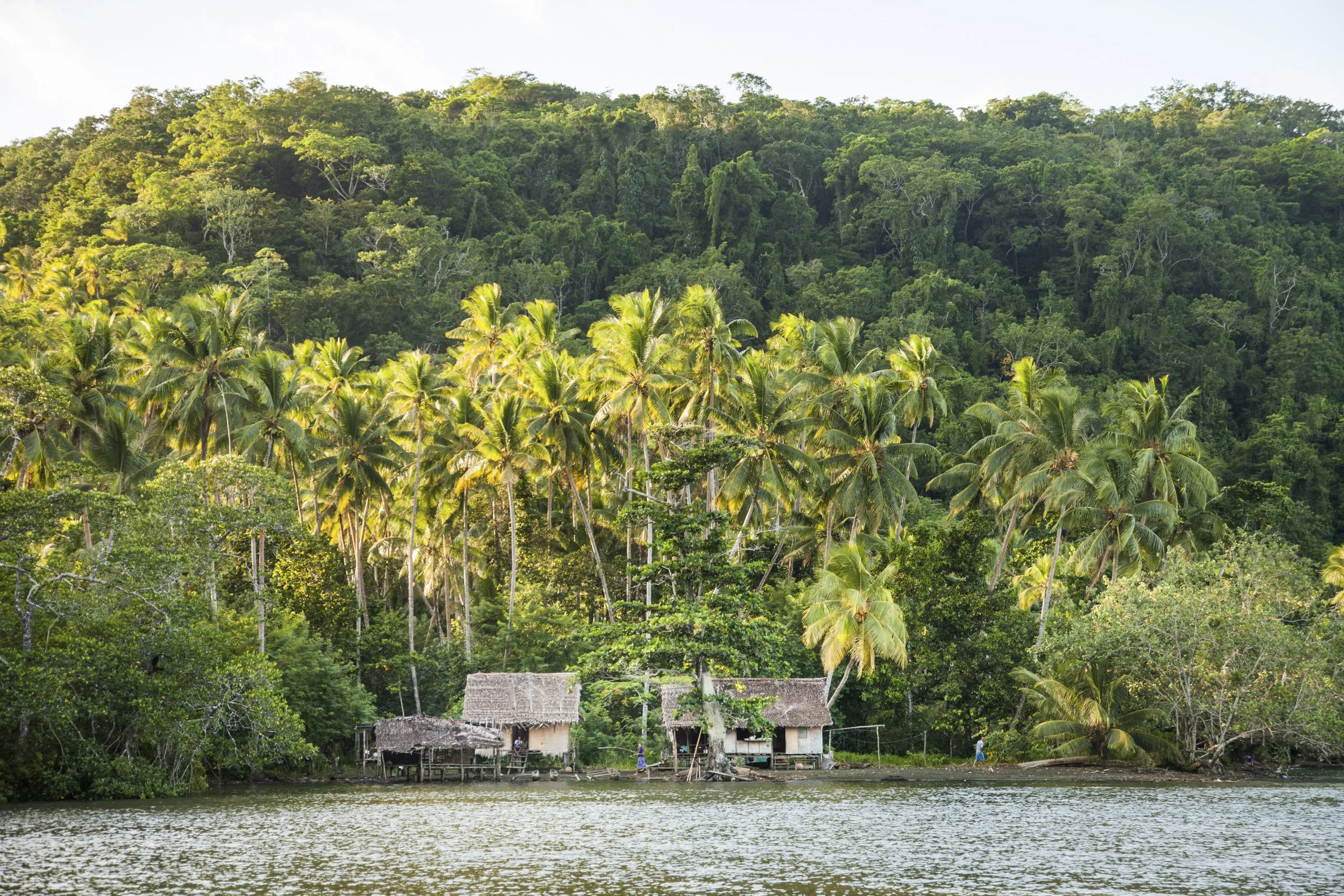The Next Generation of Ecologists Lives in Rainforest
Trans-generational unity in climate action is something we can get behind. Read on to discover stories of action direct from the world’s most important, Earth cooling, carbon-sink rainforests. Action that you, our supporters, fund with cash. Here, we focus on the bright side of rainforest conservation.


When traditional and academic knowledge collide, incredible things are learnt, shared and discovered.
Meet Clifford Yaee, our Research and Forest Monitoring Coordinator and outreach extraordinaire. Clifford has been a crucial catalyst in creating a paraecologist training programme in Wabumari, Papua New Guinea.
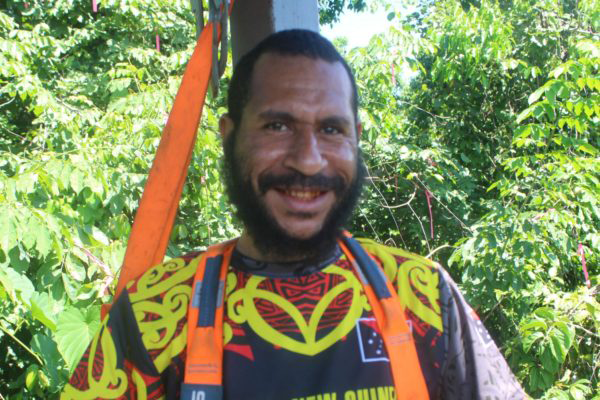

Research and Forest Monitoring Coordinator, Clifford Yaee
What is paraecology?
Paraecology is the study and training of the relationship between plants, animals and the environment outside of an academic setting and instead, out in the field. Simply put, paraecology is on-the-job training to become an ecologist. It’s happening right now in Papua New Guinea, funded by people like you.
Not your average rainforest; not your average ecologists.
Clifford has put the village of Wabumari on the map as an environmental learning hotspot. This foray into paraecology started off by chance when the University of Goroka reached out to place two students in this particular area of rainforest. Rainforest that boasts a mixture of mangrove forest at sea level right up to mountainous regions of 482m high. Here, you’ll find rich biodiversity and carbon-capturing tree and plant species to study and learn about.
Clifford organises and leads the ecology training programme for eleven residents of Wabumari, writing and teaching modules as well as guiding trips for university students and scientists alike.
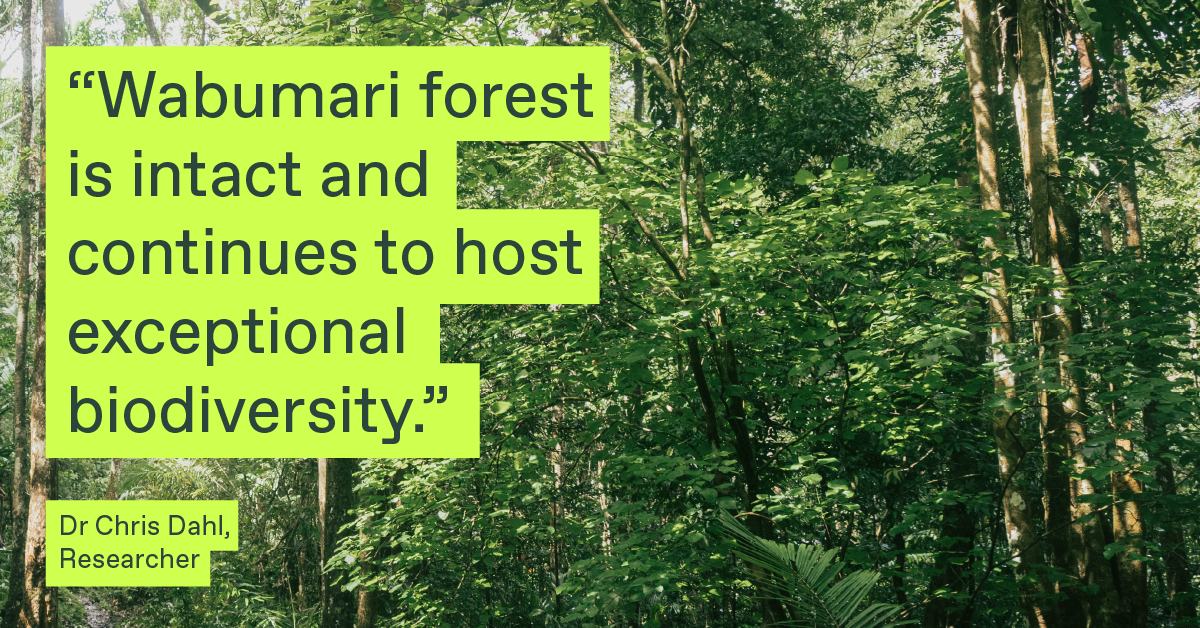

A meeting of minds.
The opportunities here aren’t just the engaging learning experiences, academic certificates or the pressure-relieving income villagers earn from guiding, feeding and accommodating visitors. The real opportunity is in creating an intersection between traditional local knowledge and scientific insight. It is in this space created by Clifford, local budding paraecologists, village elders, students and scientists where ideas happen that protect rainforest, traditional cultures and even the future, for all of us.
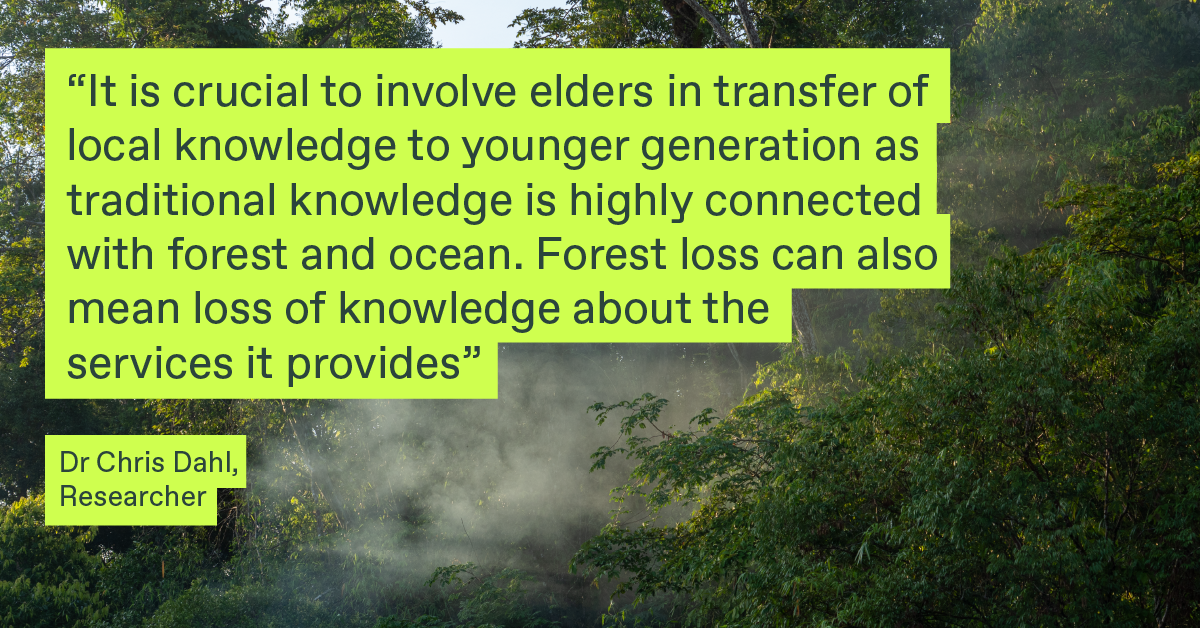

The project has three fundamental aims:
- Training local people to become conservation leaders in their community and beyond
- Knowledge exchange between local people within the community and scientists
- Data collection for crucial forest monitoring, future planning and decision making
The training programme funded by Cool Earth is three years long, with a third of students being women. It allows people to gain experiences that can springboard into a career in conservation, biology or forest guiding. Or at the very least, give them a basis to take further study. Learning happens practically out in the field, with visiting academics and in a classroom setting too. Studies and exercises range from the principles of ecology, 3D land modelling and predictions, biodiversity monitoring and recording, to laws surrounding wildlife in Papua New Guinea. Students, as is customary in PNG, are awarded certificates for each year passed in a ceremony involving our staff and notable people from the region.
Knowledge transfer happens between many parties making for an invaluable fast-track learning experience for all involved. Between generations, village elders educate and inspire with illuminating insight that many academics would agree, you just wouldn’t learn in books. This strengthens stewardship of the land and gives young people context of how important their traditional knowledge is for the scientific processes and applications that conserve their rainforests.
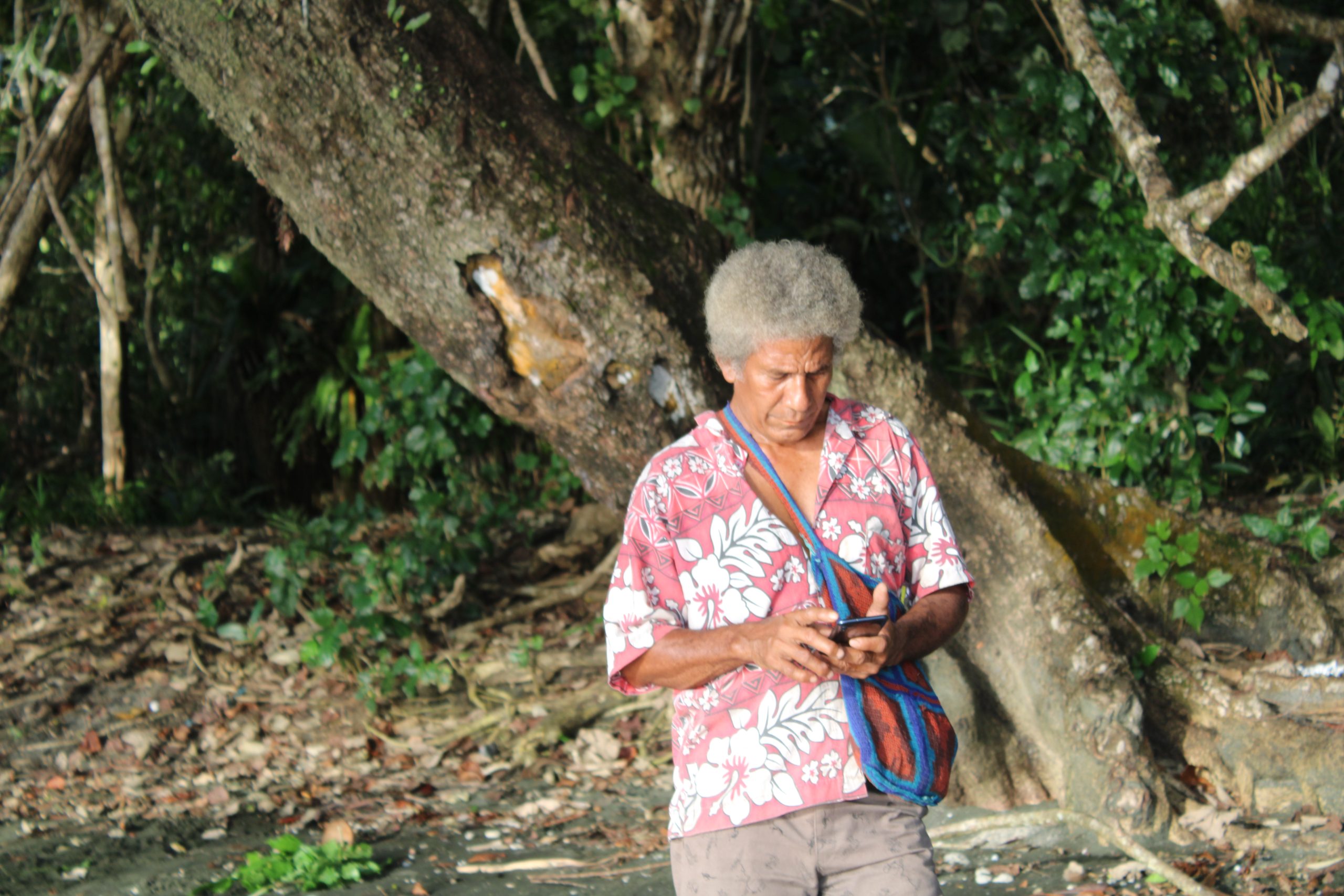

Basil Matasia, our Community Facilitator, is collecting data on a mobile app.
What reinforces the importance of protecting species and the environment is how the information shared is entwined with cultural significance. We believe these ancestral stories give meaning beyond logic and fact alone. Plainly put, traditional knowledge combined with scientific knowledge becomes a climate action force to be reckoned with. This is most likely felt by the scientists and academics too who go on to record species with both indigenous and scientific names. The insight and wisdom shared makes each person’s outlook and understanding richer with more colour. The merging and exchange of knowledge become a catalyst for change filling in gaps felt by both parties.
Data collection can save lives and protect rainforest. Academics arm the Wabumari-based ecology students with data that can inform future land uses, be it for houses, schools or hospitals, so they can be constructed in areas out of risk from rising sea levels. Alongside this, monitoring 20x20m areas of rainforest designated as permanent carbon plots gives accurate long term carbon sequestration (storage) information. Data that is helping us reimagine how primary and secondary rainforest rejuvenates. This is so important as it challenges ideas that small scale forest gardens (agricultural land) permanently damage rainforest. It is in these plots that a world’s smallest frog was discovered living in PNG by Dr Chris Dahl, a researcher working in Wabumari.
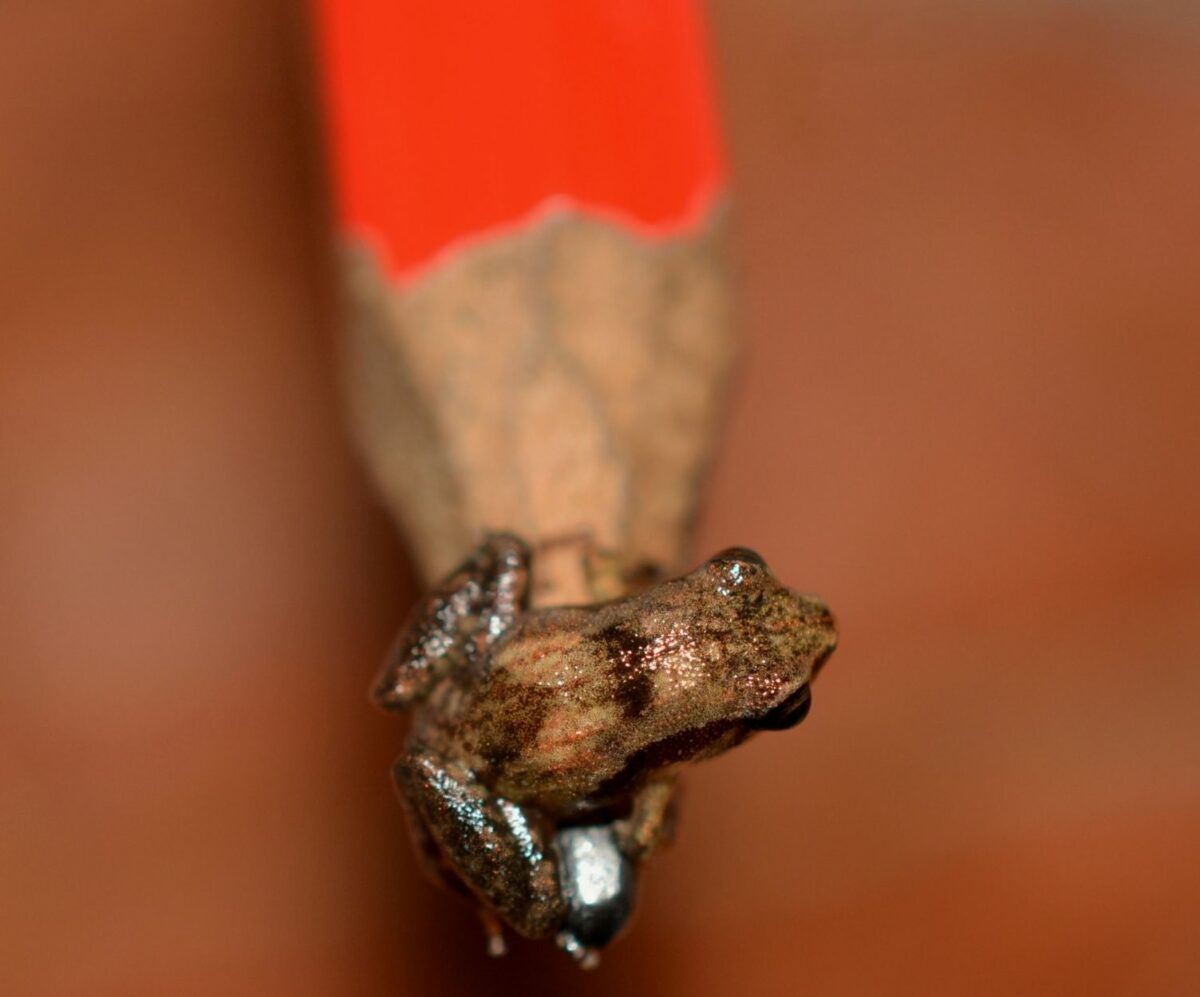

The worlds smallest frog (known as a Rokrok – like the sound it makes) sits on the end of a pencil’s led tip barely covering it.
How all this benefits rainforest.
This benefits rainforest communities in many ways. It puts Wabumari on the map, its beauty and diversity become more well known, so it becomes more cared for, increasing its significance in the eyes of those that don’t live there.
Income opportunities are incredibly hard to come by in rural areas. Local people are able to host visitors providing income, and those that know the forest are able to act as guides.
It is on these guided field trips and studies that new information is found and is where knowledge sharing really comes alive. When this happens, the reasons for and how to protect rainforest become richer and more meaningful to all involved. This cross-pollination of academic and traditional knowledge goes way beyond scientific study. It brings people from different backgrounds closer together, it fosters human connections that will undoubtedly lead to some important relationships.
How all this makes us feel.
Young people living in Wabumari are invested and investing in their homes. People living in rainforest have always been the very best at protecting it. What we love about this project is that students are paid to do so and are being given, thanks to people like Clifford, opportunities to gain a deeper understanding of just how important they and their home are on a global scale. It makes us feel optimistic for people living in rainforest to continue being guardians, and to retain control. We plan on expanding this training programme after the initial three years to offer continued support and investment to young ecologists.
This support reinforces the power that people in rainforest have, arms them with the data and scientific insight to make decisions that benefit them and help them control and protect their homes. An act that ultimately benefits all of us.
Trans-generational unity in climate action is something we can get behind.
